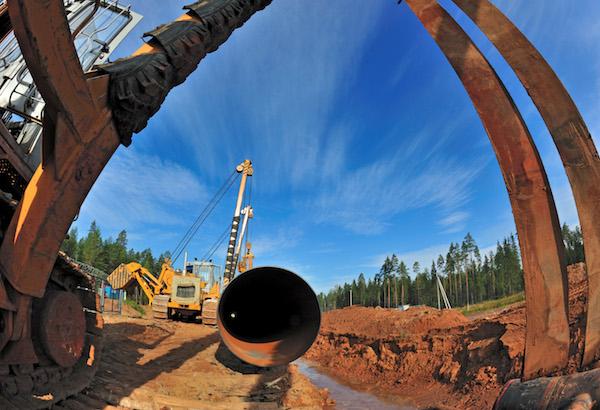
SOUTH STREAM: SERBIA

While Serbia appears one hundred percent committed to pursuing the South Stream project, the EU continues to produce new ideas on how to block the proposed gas route. This is in the midst of a confused political situation regarding the pipeline's entry point in Bulgaria, a country about to enter a polarized early general election.
To begin, the EU's Directorate-General (DG) for Energy, through its spokesperson, recently stated that the Commission cannot legally enforce its provisions against South Stream, regarding the portion that will pass through Serbia, due to its non-EU member state status as it is not bound by the same rules.
According to news streams out of Belgrade and Moscow, the Serbian route should start its construction process by mid-October 2014. Nevertheless, it should be noted that without Bulgaria's part of the pipeline, it is not feasible to assume construction will commence before the new Bulgarian government is elected after the 5th of October and is ready to announce a re-commencement of work on the section going from the Black Sea up to the borders with Serbia. As such, it can be assumed that the infrastructure process in Serbia itself will be delayed by a few weeks (and possibly a few months). It is highly unlikely that a single party will win the elections in Bulgaria so as to have an autonomous government without having to rely on minority legislative votes. In short, what happens in Sofia could eventually derail the schedule of South Stream.
Bearing in mind Bulgaria's crucial role, the EU Commission through its DG Energy spokesperson Marlene Holzner, relayed that the country is an EU member and therefore it should abide by common rules otherwise punitive measures could be taken against it. It is of interest to note that the EU assured it is monitoring Bulgaria's stance and asks for re-confirmation of its posture vis-a-vis South Stream, effectively putting the country in 'quarantine' until further notice. This has already caused a reflex of nationalism across a wide spectrum of the Bulgarian media and political circles and may actually pave the way for the supporters of the gas pipeline to rise in the upcoming elections.
Moreover, the European Parliament (EP) voted in favor to scrap all agreements made by member states regarding South Stream, including Bulgaria, Greece, Italy, Austria, Croatia, Slovenia, and Hungary. Taking things a step further, the voting of the EP requests all 28 member states to cancel all previous energy agreements in both oil & gas and nuclear towards Russia, despite the fact that should such a move take place, European industry and consumers will be dealt with a heavy blow of epic financial proportions and cause volatility on the global energy market.
The voting in effect does not have a legal binding power, but it carries a political message and further complicates a project like South Stream - a project at the epicenter of a battle between Brussels and Moscow, and brought further into the limelight due to the Ukraine crisis. It can be safely assumed that the 'Babylonian' structure of the EU's institutions coupled with the conflicting interests between member states and corporations regarding a joint stance against Russia, will inevitably delay South Stream, not so much as a united front opposition but exactly because of the conflicting nature of all powers involved.
Bearing that in mind, Serbia in particular is bracing itself for a the worst case scenario, that of a natural gas disruption of the flow from Gazprom to Europe this winter, thus it has requested from the neighboring Hungary to make use of its well-developed gas storage facility system, while it gradually fills up its own units. Another option is to make use of Gazprom's ability to store gas in Hungary in order to cover the needs of the whole region, which also illustrates the role of Budapest as a major energy security hub for the whole of Southeastern Europe.
According to a report from LSE's European Politics & Policy Academic Forum, Serbia "would be hardest hit by a suspension of Russian gas exports through Ukraine." Serbia gets 100% of its gas needs via Ukraine, while in the previous 2009 crisis which lasted briefly it made use of Hungarian storage facilities to avoid a crash in the local heating and electricity system. According to Eurogas figures for 2012, Bulgaria has an almost 85% dependency on Russia for local consumption, while for the whole of 2013 its reliance on the gas transiting Ukraine stands at 100%, with almost identical figures expected to date.
naturalgaseurope.com





